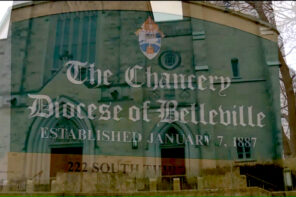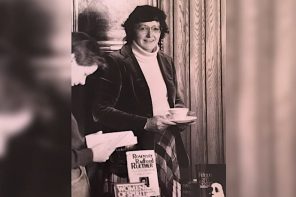The big nightly network news shows are more likely to turn to the Catholic hierarchy as a source for stories about contraception controversies than doctors, according to a new study.
Dr. Jen Gunter reports on her blog about the study, National Network Television News Coverage of Contraception in the Era of the Affordable Care Act, which was presented recently at the American Congress of Obstetricians and Gynecologists meeting.
Dr. Elizabeth Patton and colleagues from the University of Michigan looked at the nightly news broadcasts of the three major networks for any mention of contraception in stories between January 2010 and July 2014. There were 113 segments on contraception during that period. Not surprisingly, the two most featured topics were contraceptive coverage and access, as the period covered the debate about including no-cost contraception in the Affordable Care Act.
Government officials or political figures were the most common sources of information for stories, used 40% of the time, followed by members the general public, who were used 26% of the time. Catholic Church leaders were used as a source 18% of the time, while any type of medical professionals were used 12% of the time and OB/GYNs specifically only 3% of the time.
This isn’t completely surprising, Patton told RD, since “the majority of news segments about contraception focus on it as a political and social issue, rather than a medical or public health issue.”
But this framing is nonetheless important, according to Patton. “News media often say they don’t make news, they cover it, but politicians and some members of the Catholic hierarchy in part drive the news coverage of contraception due to their positions objecting to the ACA mandate,” she notes.
And the fact that OB/GYNs were so rarely used as sources of information is troubling given how often the Catholic bishops made false medical claims that emergency contraceptives, which were a key point of contention in the mandate, were actually “abortion-inducing drugs.” In fact, the study found that the most common method of contraception discussed in the news segments was emergency contraception, which was mentioned one-fifth of the time in the approximately one-half of segments that talked about a specific kind of contraception.
For Patton, it comes down to a need for balance in the media coverage of contraception issues:
Reproductive health clinicians play a crucial role in ‘counter messaging’ non-medical sources of information about contraception—a viewpoint which is often left out of current coverage. There is a need for clinicians with this expertise to serve as experts who can address the scientific evidence about the public health and sociocultural benefits of contraception.
In other words, the next time the nightly news does a segment about contraception, and what it does and doesn’t do, and who it does and doesn’t benefit, maybe they should consider asking an actual doctor in addition to the Catholic bishops.




